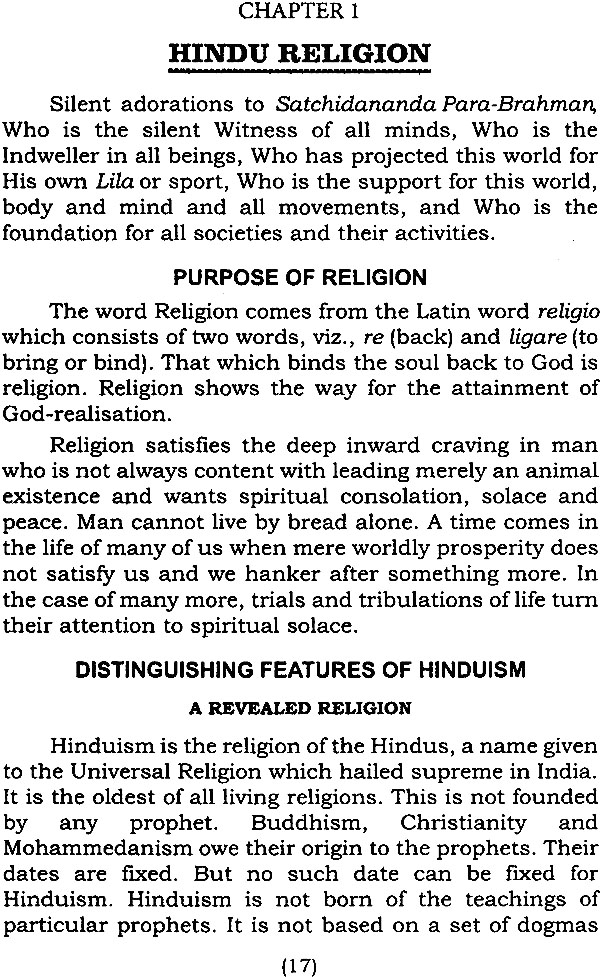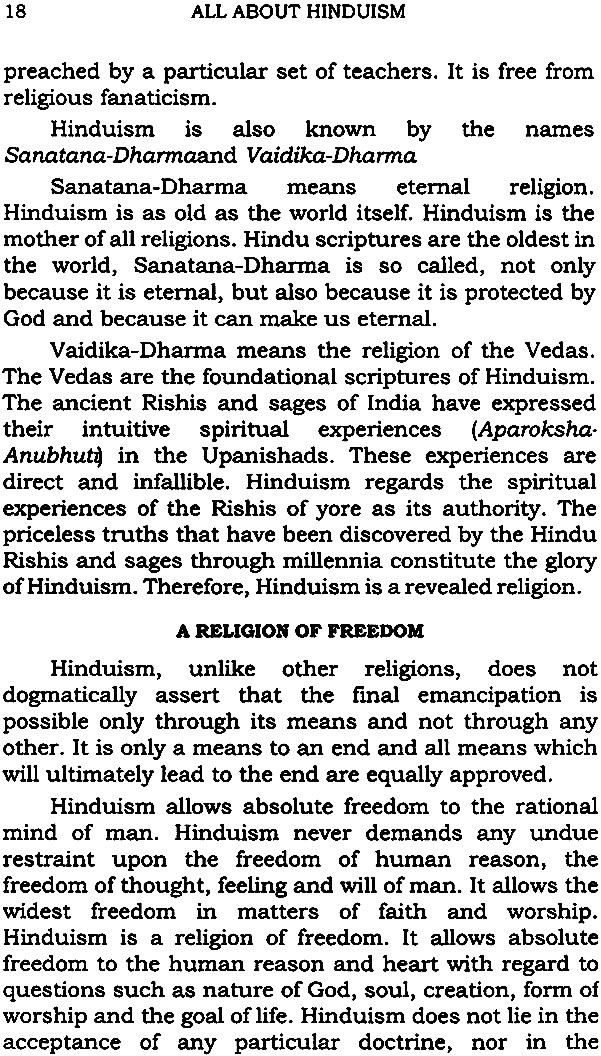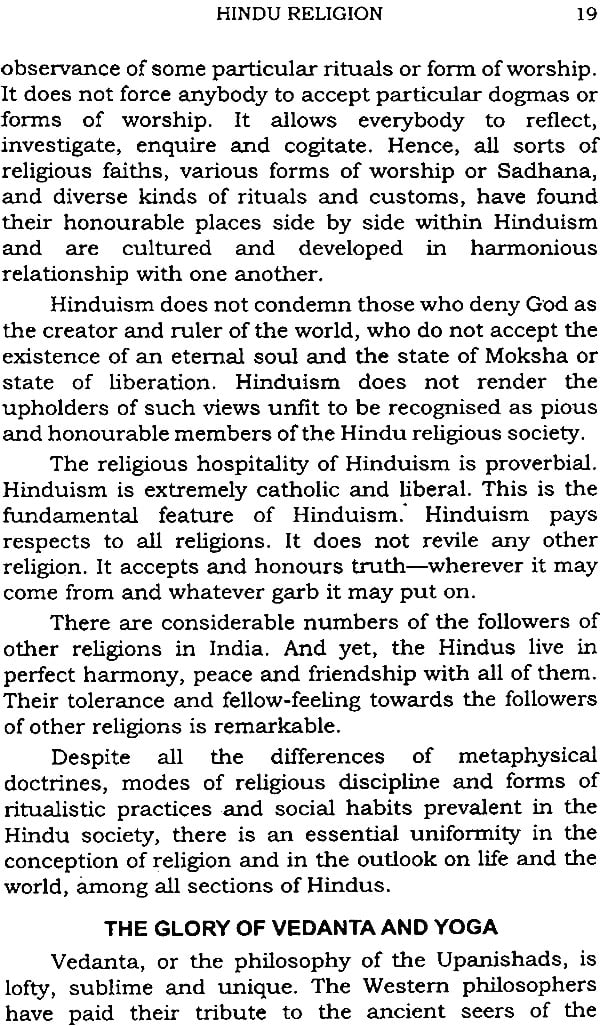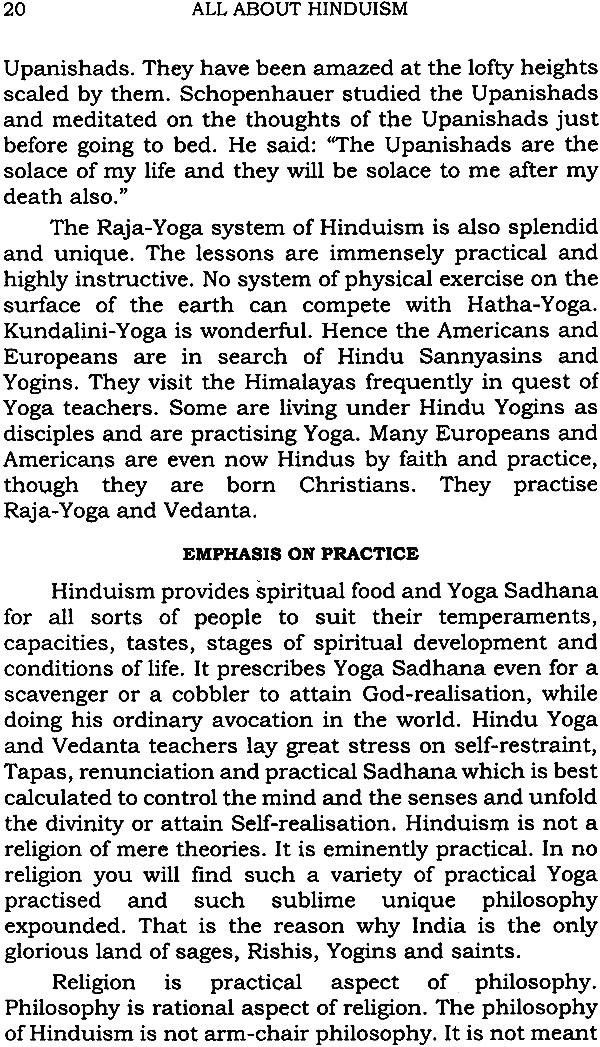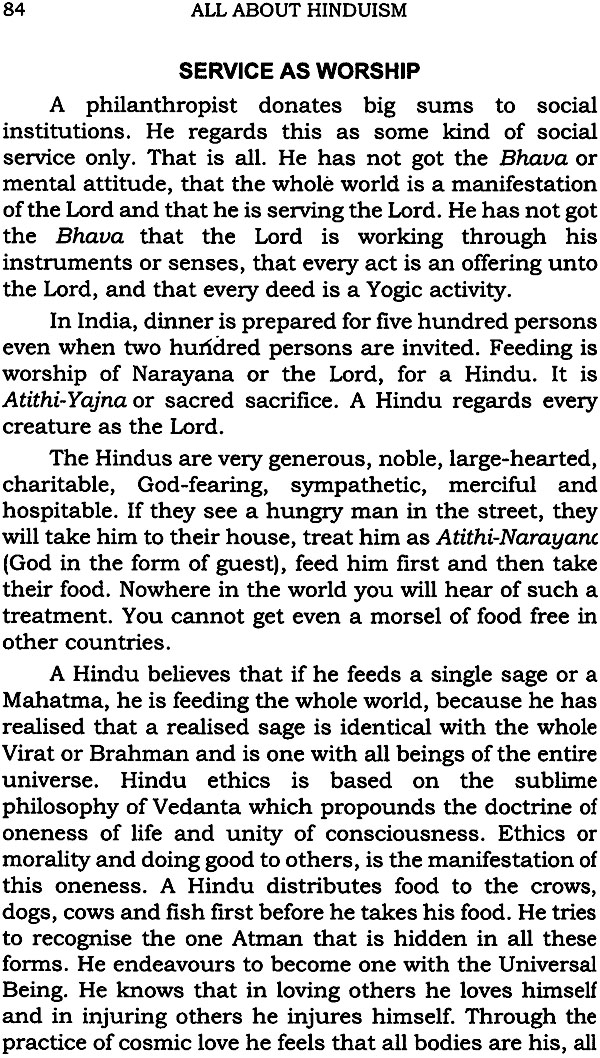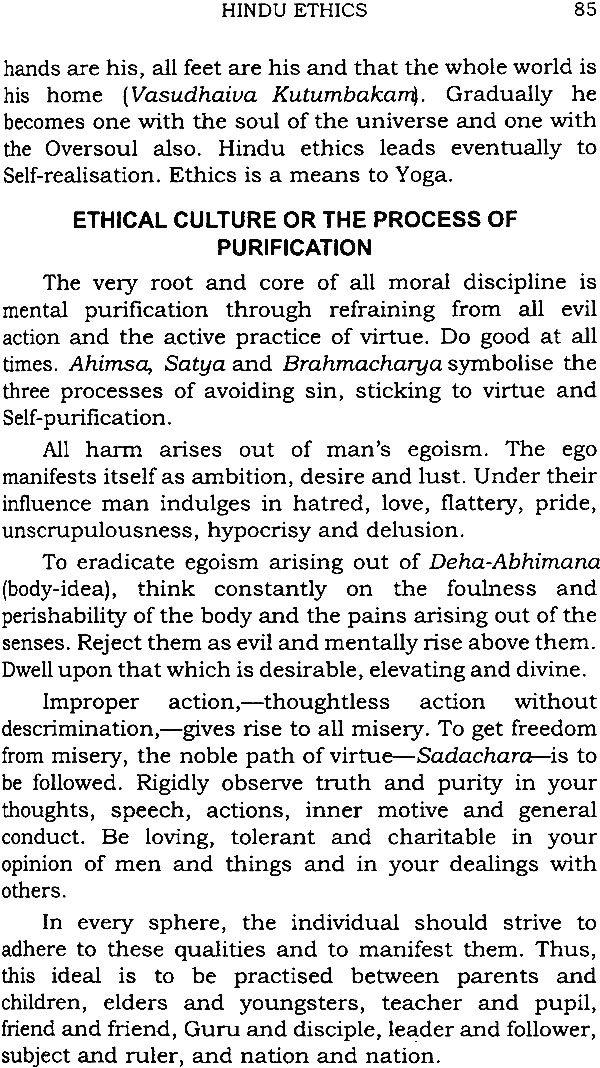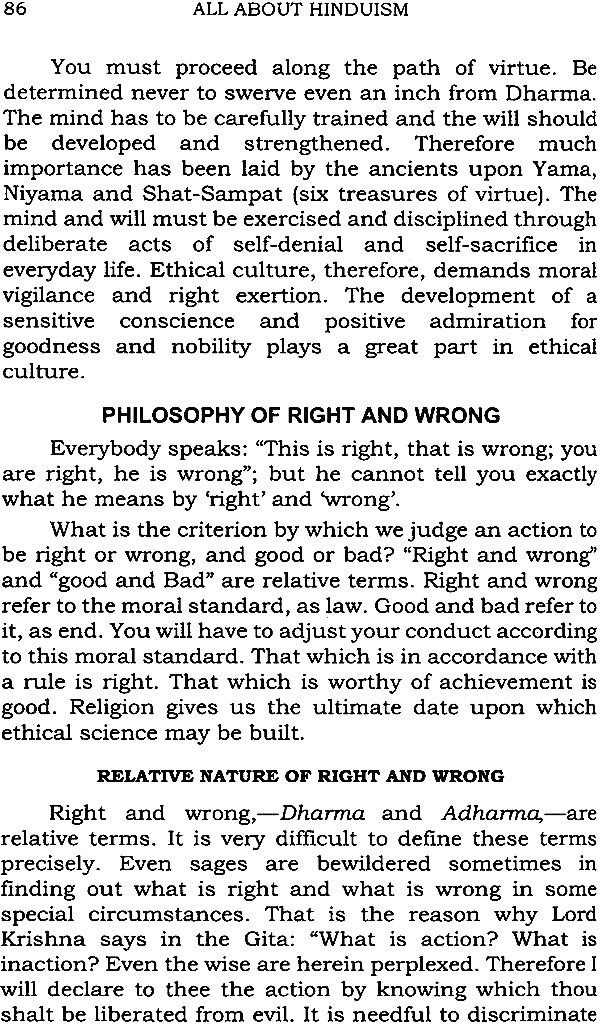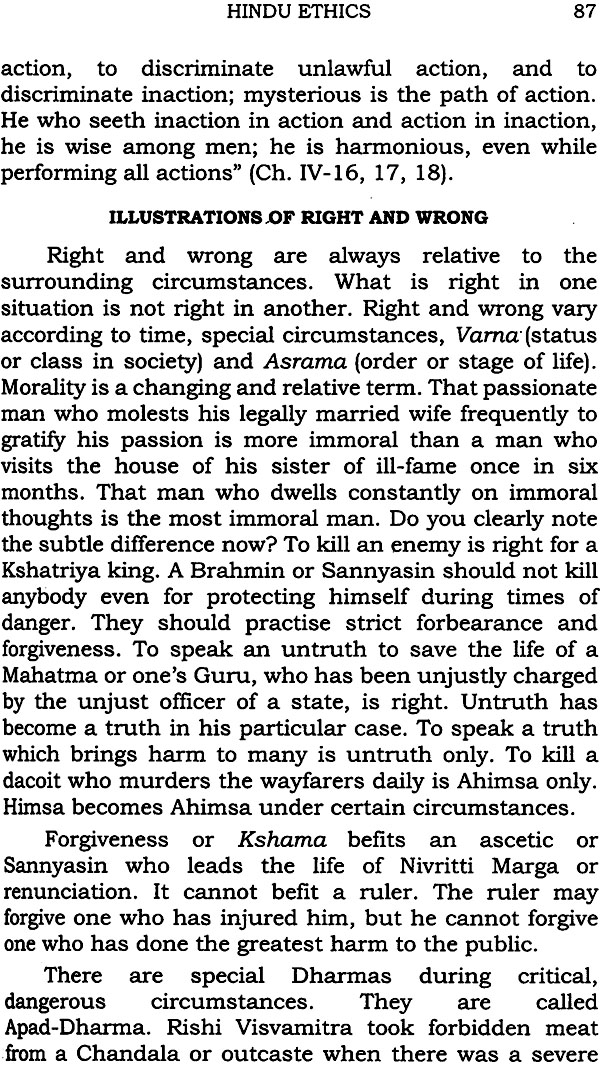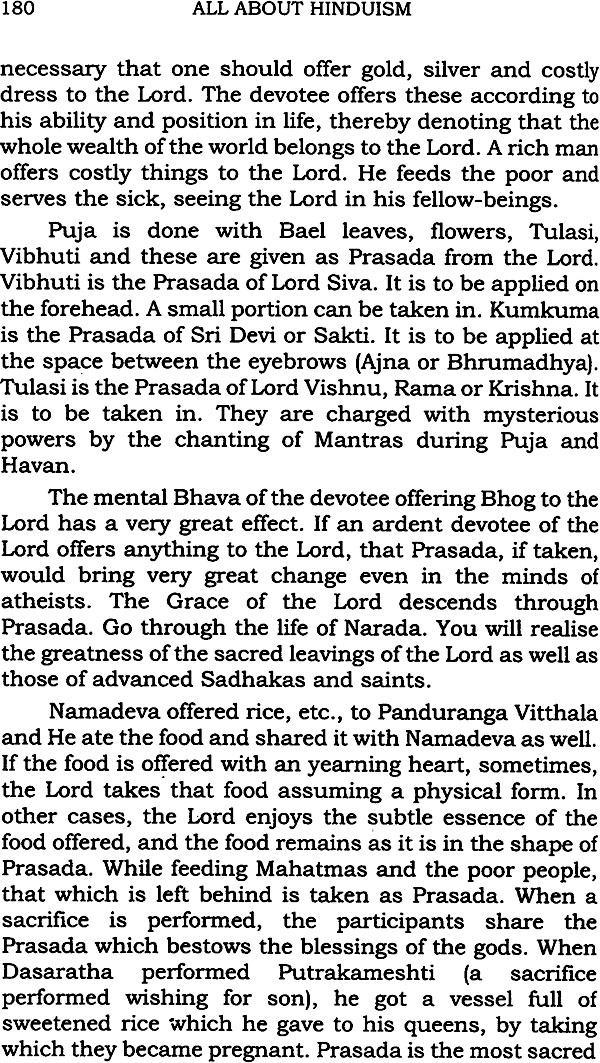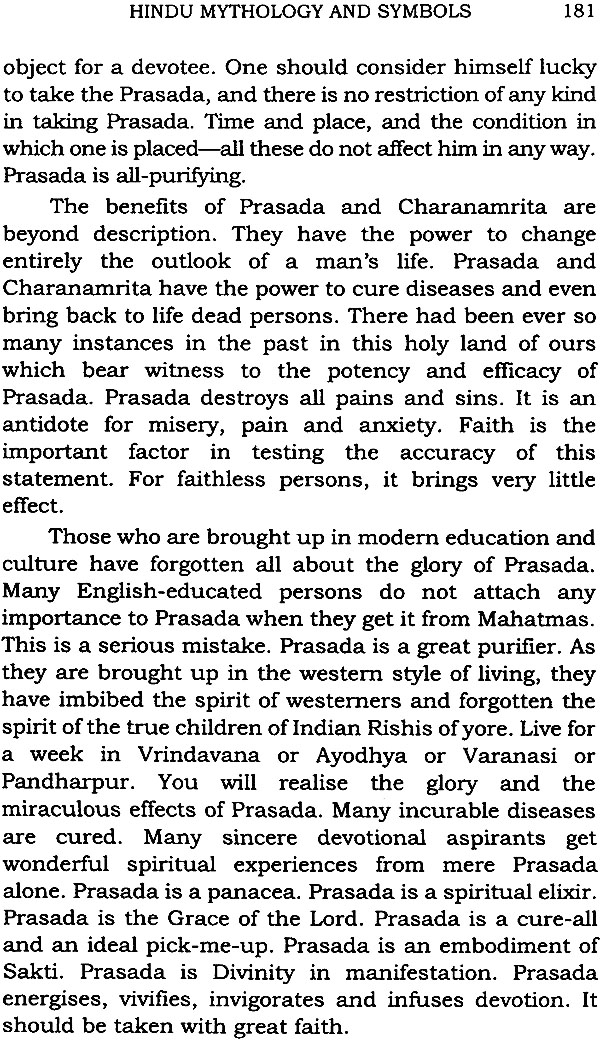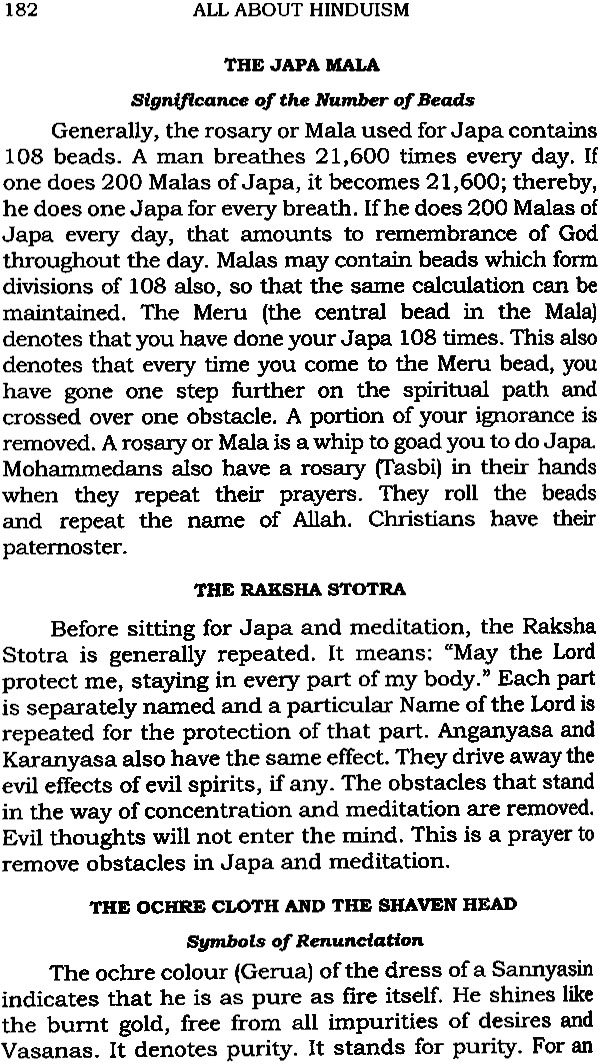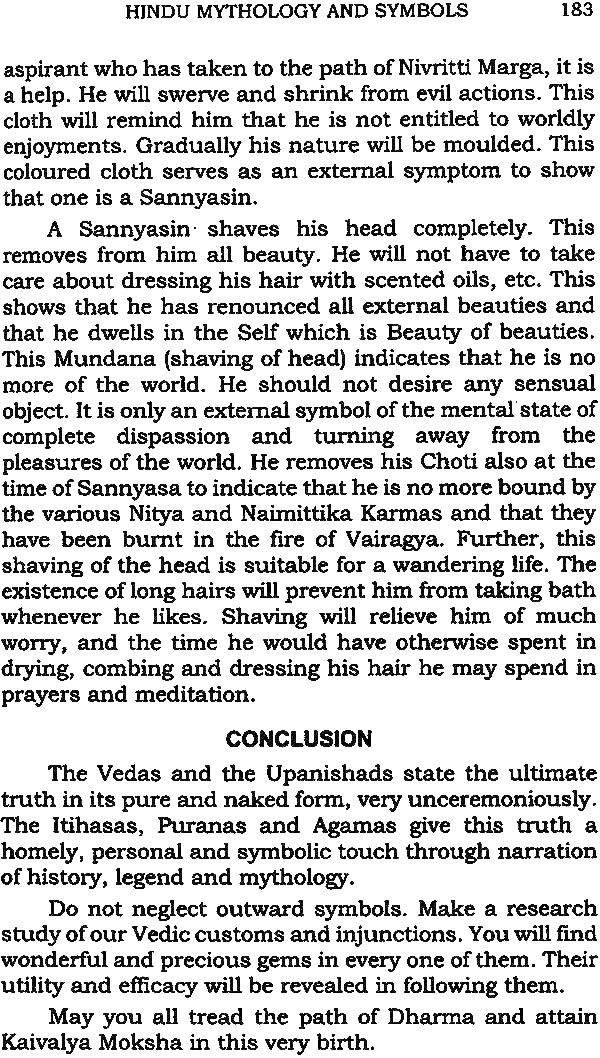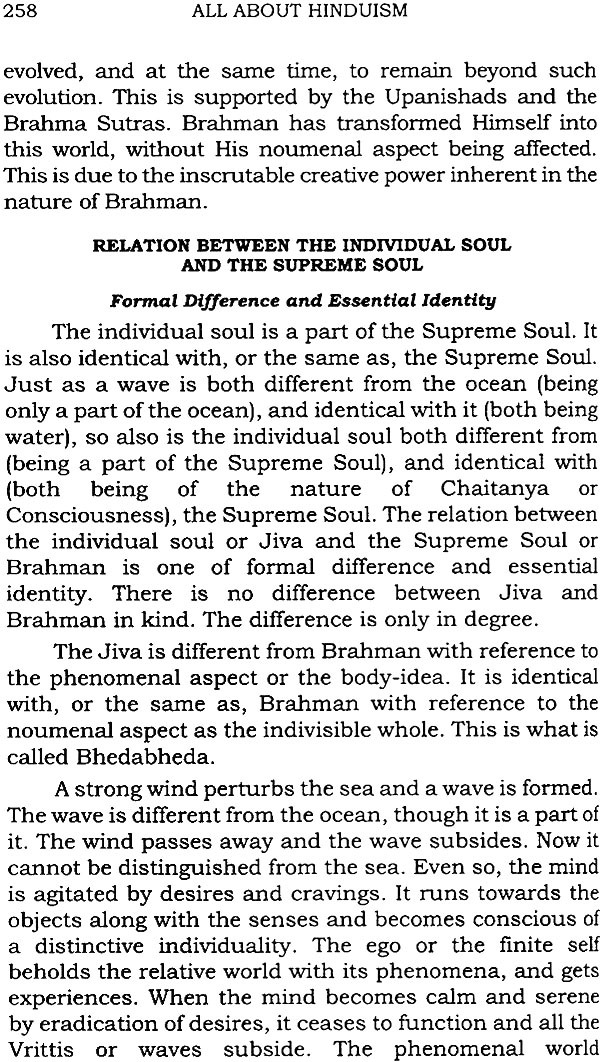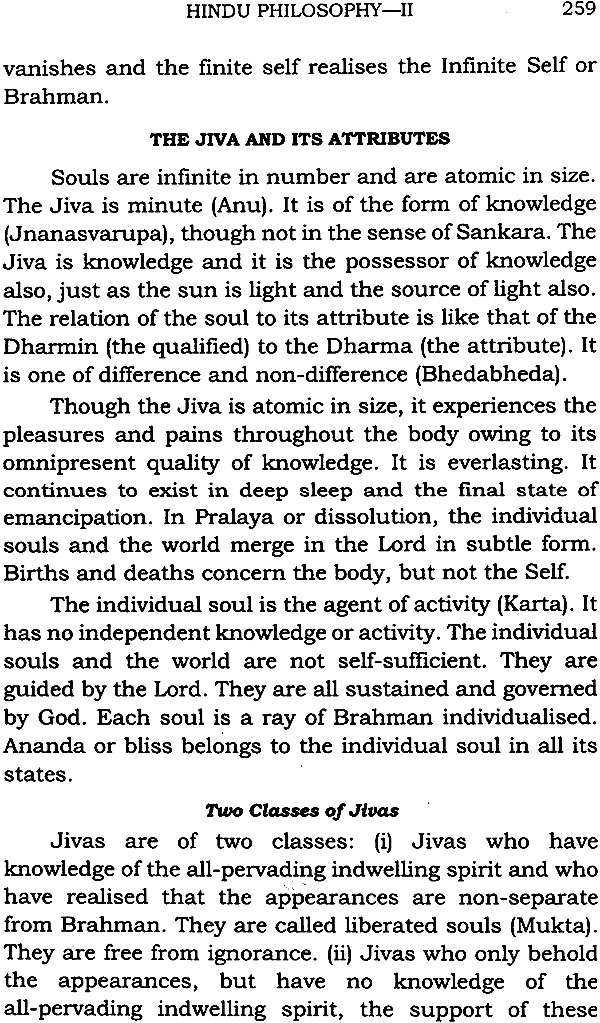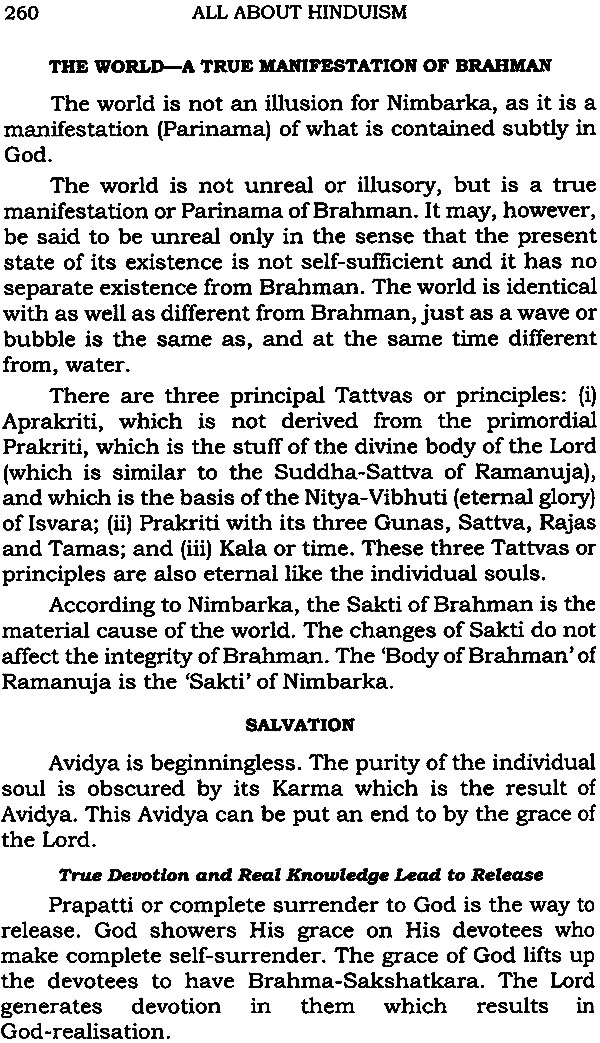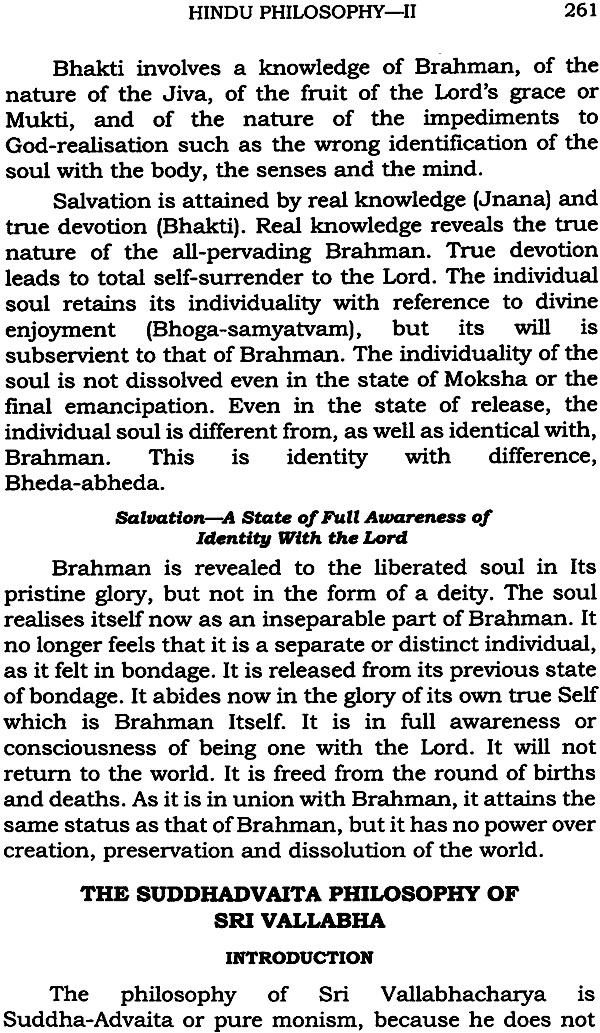
All About Hinduism
Book Specification
| Item Code: | NAM179 |
| Author: | Swami Sivananda |
| Publisher: | THE DIVINE LIFE SOCIETY |
| Language: | English |
| Edition: | 2018 |
| ISBN: | 8170520479 |
| Pages: | 311 |
| Cover: | Paperback |
| Other Details | 8.5 inch x 5.5 inch |
| Weight | 350 gm |
Book Description
Born on the 8th September, 1887, in the illustrious family of Sage Appayya Dikshitar and several other renowned saints and savants, Sri Swami Sivananda had a natural flair for a life devoted to the study and practice of Vedanta. Added to this was an inborn eagerness to serve all and an innate feeling of unity with all mankind.
His passion for service drew him to the medical career; and soon he gravitated to where he thought that his service was most needed. Malaya claimed him. He had earlier been editing a health and wrote extensively on health problems. He discovered that people needed right knowledge most of all; dissemination of that knowledge he espoused as his own mission.
It was divine dispensation and the blessing of God upon mankind that the doctor of body and mind renounced his career and took to a life of renunciation to qualify for ministering to this soul of man. He settled down at Rishikesh in 1924, practised intense austerities and shone as a great Yogi, saint, sage and Jivanmukta.
In 1932 Swami Sivananda started the Sivanadashram. In 1936 was born The Divine Life Society. In 1948 the Yoga-Vedanta Forest Academy was organised. Dissemination of spiritual knowledge and training of people in Yoga and Vedanta were their aim and object. In 1950 Swamiji undertook a lightning tour of India and Ceylon. In 1953 Swamiji convened a ‘World Parliament of Religions’. Swamiji is the author of over 300 volumes and has disciples all over the world, belonging to all nationalities, religions and creeds. To read Swamiji’s works is to drink at the Fountain of Wisdom Supreme. On 14th July, 1963 Swamiji entered Maasamadhi.
| Publishers' Note | 6 | |
| Universal Prayers | 7 | |
| 1 | Hindu Religion | |
| Purpose of Religion | 17 | |
| Distinguishing Features of Hinduism | 17 | |
| The Glory of Vedanta and Yoga | 19 | |
| Emphasis on Practice | 20 | |
| Who is a Hindu? | 21 | |
| Origin and Significance of the Term | 22 | |
| The Spiritual Soil of India | 23 | |
| The Facts of History | 25 | |
| Reasons for Survival of the Hindu Religion | 26 | |
| Its Future | 26 | |
| 2 | Hindu Scriptures | |
| Sanskrit Literature | 28 | |
| The Scriptures | 28 | |
| The Secular Writings | 51 | |
| Conclusion | 52 | |
| 3 | Hindu Dharma | |
| Definition of Dharma | 54 | |
| The Sole Authority of the Vedas | 56 | |
| The Changing Dharma | 56 | |
| Dharma in Other Zreligions | 57 | |
| Benefits of the Practice Dharma | 57 | |
| kinds of Dharma | 58 | |
| Sanatana Dharma | 59 | |
| Samanya Dharma | 60 | |
| Varnasrama Dharma | 66 | |
| Yuga Dharma | 77 | |
| Conclusion | 78 | |
| 4 | Hindu Ethics | |
| Conduct and Character | 80 | |
| Ethics or the Science of Conduct | 80 | |
| Ethics, Spirituality and Religion | 81 | |
| Benefits of the Practice of Ethics | 81 | |
| Ethical Codes in Hinduism | 82 | |
| The Foundational Principles of Hindu Ethics | 83 | |
| Service As Worship | 84 | |
| Ethical Culture or the Process of Purification | 85 | |
| Philosophy of Right and Wrong | 86 | |
| Yogic Gardening | 90 | |
| Conclusion | 91 | |
| 5 | Hindu Tenets | |
| The Law of Karma | 92 | |
| The Doctrine of Reincarnation | 98 | |
| The Concept of nAvatara | 102 | |
| 6 | Hindu Rituals | |
| Sandhyopasana | 104 | |
| The Ten Scriptural Samskaras | 109 | |
| The Pancha Mahayajnas | 113 | |
| Sraaddha and Tarpana | 116 | |
| Pitripaksa and Mahalaya Amavasya | 118 | |
| Navaratri or the Nine-day Worship of Devi | 120 | |
| 7 | Hindu Worship | |
| Worship or Upasana | 125 | |
| Benefits of Worship | 125 | |
| Saguna-Upasana and Nirguna-Upasana | 127 | |
| The Bhavas in Bhakti Yoga | 128 | |
| The Philosophy and Significance of Idol-worship | 132 | |
| From Ritualistic Bhakti to Para-Bhakti | 141 | |
| The Glory Hindu Philosophy and Hindu Mode of Worship | 142 | |
| Conclusion | 144 | |
| 8 | Hindu Yoga | |
| The Four paths | 146 | |
| Karma Yoga | 146 | |
| Bhakti Yoga | 148 | |
| Raja Yoga | 149 | |
| Jnana Yoga | 152 | |
| The Yoga of Synthesis | 154 | |
| 9 | Hindu Theology | |
| Theological Classifications | 157 | |
| The Vaishnavas | 158 | |
| The Saivas | 163 | |
| The Saktas | 164 | |
| Miscellaneous | 164 | |
| The Arya Samajists and the Brahma Samajists | 165 | |
| Sadhus and Sannyasins | 165 | |
| 10 | Hindu Mythology and Symbols | |
| Hindu Mythology | 171 | |
| Hindu Symbols | 173 | |
| Conclusion | 183 | |
| 11 | Hindu Philosophy-I (The Shad-Darsanas) | |
| Philosophy-Its Origin and Its Limitations | 184 | |
| The Orthodox and the Heterodox Systems of Indian Philosophy | 186 | |
| The Shad-Darsanas or the Six Orthodox Schools | 186 | |
| The Nyaya | 190 | |
| The Vaiseshika | 196 | |
| The Sankhya | 217 | |
| The Yoga of Synthesis | 217 | |
| The Purva Mimamsa | 225 | |
| The Vedanta Philosophy | 230 | |
| 12 | Hindu Philosophy-II (The Schools of Vedanta) | |
| Introduction | 236 | |
| The Advaita Philosophy of Sri Sankara | 239 | |
| The Visishtadvaita Philosophy of Sri Ramanuja | 243 | |
| The Dvaita Philososphy of Sri Madhvacharya | 249 | |
| The Dvaitadvaita Philosophy of Sri Nimbarka | 255 | |
| The Suddhadvaita Philosophy of Sri Vallabha | 261 | |
| The Achintya Bhedabheda Philosophy of Sri Chaitanya | 269 | |
| 13 | Hindu Philosophy-III (Saiva Siddhanta and Saktaism | |
| The Saiva Siddhanta Philosophy | 275 | |
| The Sakti Yoga Philosophy | 279 | |
| 14 | Epilogue | |
| Unity-The Need of the Hour | 289 | |
| Who is Qualified to Religion Effciently | 290 | |
| Education and Nation-Building | 291 | |
| Call for Consolidation of the Nation | 295 | |
| Appendice | ||
| I | The Siva-Linga | 297 |
| II | Indian Culture Based on the Bhagavad-Gita | 300 |
